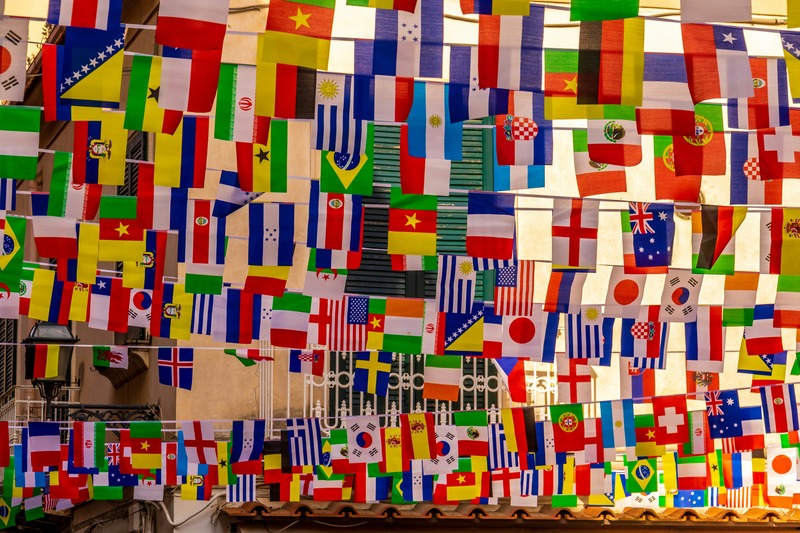These days, many of us have connections to more than one country through family, work, or education. Multiple national ties, however, aren’t systematically evident for some countries - those that do not permit dual citizenship.
While several countries recognise dual citizenship, the conditions under which dual citizenship is allowed vary from country to country, as some have more lenient policies while others impose restrictions.
Dual citizenships stem from several common reasons that are proven to be beneficial for its holders.
Recognition of global mobility and migration is one. Some countries include dual citizenship as part of their immigration policies, allowing immigrants to retain their original citizenship while becoming citizens of the new country for a seamless transition into a new culture and society. It also boasts convenience for those conducting business across borders (entrepreneurs, executives, and workers in international fields) without the bureaucratic burden of constantly applying for visas or work permits.
Then there’s the acknowledgement of cultural and ancestral ties. For instance, people with roots in a particular country may be able to retain that citizenship while acquiring citizenship in a new country where they reside. That means the rights and privileges of both countries, such as healthcare, education, property ownership, and social security are attainable.
It’s a pragmatic solution to modern issues such as transnational families and global networks. Opposed to forcing individuals to choose one country over another, allowing dual citizenship can simplify matters for people who live in multiple jurisdictions.
Dual citizenship is also a gateway for a country’s relationship with the diaspora (individuals of their ethnicity or origin who live abroad) to foster closer ties with their global community, enhancing influence, economic connections, and cultural exchange. An Indonesian former minister brought up this suggestion in April 2024, considering Indonesians are not permitted to hold dual citizenship.
With all the perks come the quirks. From navigating the maze of taxes and political representation to juggling military service duties and potential clashes between national laws, it can get a little complicated. Some countries, ever cautious of the legal and diplomatic puzzles dual citizenship might present, impose certain restrictions or conditions to keep things in check.
Curious about which countries are lenient with their policies? Here are some countries that recognise dual citizenship.
Argentina

Argentina allows dual citizenship, and people who acquire citizenship through naturalisation or birthright can retain foreign nationalities. Argentina generally does not require renunciation of other citizenships.
Australia

Australian citizens can hold citizenship in another country if the laws of that country allow it. Australian citizens holding dual citizenship in Australia, nevertheless, must always comply with all local laws where some apply even when they are abroad.
Belgium

Belgian citizens can acquire foreign nationality without automatically losing their Belgian citizenship, and vice versa.
Brazil

Brazil recognises dual citizenship and allows its citizens to hold multiple nationalities without the citizens having to give up their nationality when acquiring another citizenship.
Canada

Canada recognises dual citizenship and allows its citizens to hold citizenship of another country without requiring them to renounce their original citizenship when they naturalise in another country.
Colombia

Colombia recognises dual citizenship and doesn’t require holders to give up their Colombian citizenship. Dual citizens have full rights in Colombia as well.
France

France is one of the countries that fully embraces dual citizenship. It allows individuals to acquire foreign nationality while retaining French citizenship, and individuals have no obligation to renounce their foreign citizenship.
Germany

The German Citizenship Act allows German citizens to hold or acquire dual citizenship only if a child is born to German and non-German parents, or parents with dual citizenship, acquire both parents' citizenship from birth according to the principle of descent; are ethnic Germans and family members who are accepted with them gain German citizenship when they are granted repatriation certificates; and German citizens acquiring a foreign citizenship while retaining their German nationality.
Greece

Greek citizens can hold foreign citizenship without losing their Greek nationality, and people of Greek descent can apply for citizenship if they meet certain criteria.
Ireland

Ireland allows dual citizenship, meaning that Irish citizens can hold citizenship of another country without losing their Irish nationality. Irish citizens can also pass citizenship down through generations.
Italy

Italy recognises dual citizenship and allows individuals to maintain their Italian citizenship while also holding citizenship in another country. People of Italian descent can also claim Italian citizenship through ancestry.
Mexico

Mexico recognises dual citizenship, permitting its citizens to acquire a foreign nationality without losing their Mexican citizenship. The Mexican passport must be used at every entrance to and exit from the country.
New Zealand

The New Zealand Government's website states that a person can become a citizen of New Zealand and another country if that country permits it. Moreover, a child born in New Zealand will automatically acquire citizenship until they turn 18, when they may renounce this citizenship if their chosen country doesn’t allow dual citizenship.
Philippines

The Philippines recognises dual citizenship, particularly for citizens who acquire another nationality by birth, marriage, or naturalisation. Filipino citizens who gain foreign citizenship can retain their Filipino nationality under the Dual Citizenship Act of 2003.
Portugal

Portuguese citizens are allowed to hold another nationality without losing their citizenship. People of Portuguese ancestry can also apply for citizenship through descent.
South Africa

South African citizens can consider dual citizenship under the South African Nationality Act of 2006, given that the individual follows specific procedures set by the South African Department of Home Affairs. Once over 18, the individual can apply to retain their South African citizenship.
Spain

Spain generally doesn’t allow dual citizenship, but it has exceptions for citizens of Ibero-American countries, as well as Andorra, the Philippines, and Equatorial Guinea, who can acquire Spanish nationality without renouncing their original citizenship.
Switzerland

Swiss law has allowed dual citizenship without any restrictions since 1st January 1992. Swiss citizens can acquire another citizenship without affecting their Swiss nationality, stated the Swiss Federal Department of Foreign Affairs (EDA). That is when the laws of the other country don’t require them to renounce their original nationality. Furthermore, Swiss citizens with dual citizenship can receive Swiss consular protection, just like those who only have Swiss nationality, as long as the country of residence does not object.
United Kingdom

British citizens can hold citizenship of other countries without losing their British nationality yet some countries that grant dual citizenship may require individuals to renounce other citizenships.
United States of America

Despite an individual can simultaneously be a U.S. citizen and a citizen of another country, the U.S. doesn’t actively encourage dual citizenship and may not offer protection to dual citizens if they face legal issues in their other country of citizenship.




 Mirella Pandjaitan
Mirella Pandjaitan
 Jan 03, 2025
Jan 03, 2025